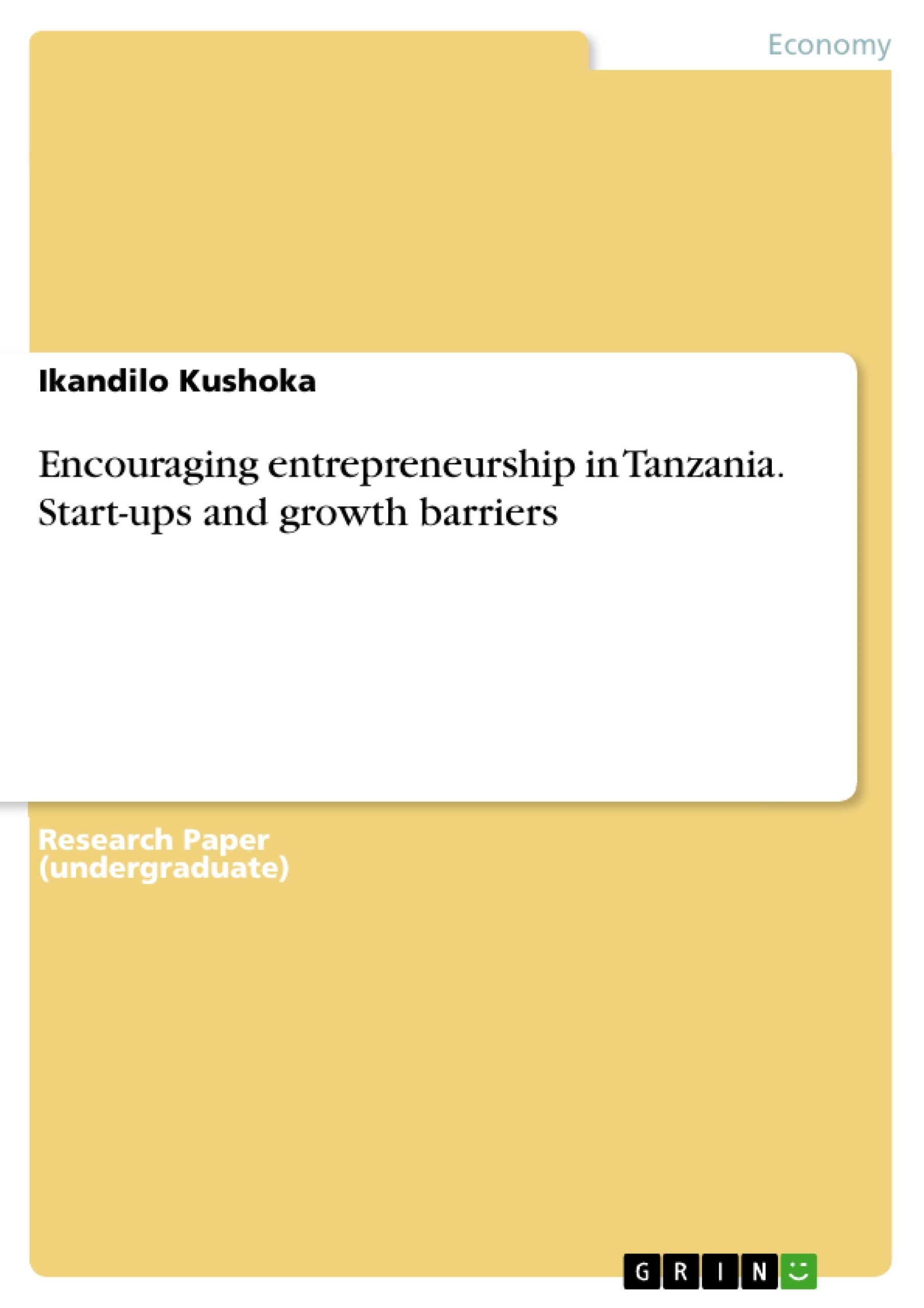This research study evolved in response to my desire to find out more about the issues of young entrepreneurs. In particular, it discusses what triggers them to form business ideas, how they enter into business, the barriers they face and ways to overcome these barriers. The researcher used descriptive design, a sample of 385 respondents was used to select respondents; the researcher also used simple random sampling techniques to select the respondents with the help of questionnaires which were used to collect the primary data. The data collected was analyzed using content analysis, descriptive statistics, cross tabulation and hypothesis testing .Content analysis was used to analyses the in depth interviews. For the survey questionnaires, descriptive statists and cross-tabulation were used to analyses the responses given by the prospective entrepreneurs. The data from the questionnaires was captured coded and exported to statistical programme for social science (SPSS) which was used for analysis.
Based on study findings and an insight gained from theory, the study proposes some strategies for dealing with the barriers identified in the research. Since it has been found that young people in start-up or growth modes who require start-up financing or financing beyond their current capital are seriously restricted by their inability to obtain loans from financial institutions because they are unable to meet the loan conditions pertaining to security, the study proposes that private sectors dealing with entrepreneurship development and entrepreneurs’ associations establish viable SACCOs.
According to literature review, study objectives and study findings the researcher, recommended that the Business Council of Tanzania should lobby the policy makers to:- Formulate an immigration policy which favors the entry of entrepreneurs who would create jobs. A policy allowing Tanzanian entrepreneurs who emigrated and obtained citizenship in other countries to retain dual citizenship would be very attractive here because they now automatically forfeit their Tanzanian citizenship. It also recommends that the Business Council of Tanzania discuss with the University of Dar es Salaam Centre for Entrepreneurship Development (CED) the establishment of a program in retailing, which the council would be asked to sponsor. That would help to develop a retailing class of entrepreneurs.
Inhaltsverzeichnis (Table of Contents)
- List of Abbreviations
- Abstract
- Chapter 1: Introduction
- 1.1 Background of the Study
- 1.2 Statement of the Problem
- 1.3 Objectives of the Study
- 1.4 Research Questions
- 1.5 Significance of the Study
- 1.6 Scope and Limitation of the Study
- 1.7 Organization of the Study
- Chapter 2: Literature Review
- 2.1 Introduction
- 2.2 Definition of Entrepreneurship
- 2.3 The Importance of Entrepreneurship
- 2.4 The Role of Government in Entrepreneurship Development
- 2.5 Barriers to Entrepreneurship Development in Tanzania
- 2.6 Strategies for Overcoming Barriers to Entrepreneurship Development in Tanzania
- 2.7 Conclusion
- Chapter 3: Research Methodology
- 3.1 Introduction
- 3.2 Research Design
- 3.3 Population and Sample
- 3.4 Sampling Techniques
- 3.5 Data Collection Methods
- 3.6 Data Analysis Techniques
- 3.7 Validity and Reliability of the Study
- 3.8 Ethical Considerations
- 3.9 Conclusion
- Chapter 4: Presentation and Analysis of Data
- 4.1 Introduction
- 4.2 Socio-economic Characteristics of the Respondents
- 4.3 Factors Influencing the Respondents to Start a Business
- 4.4 Barriers Facing Young Entrepreneurs in Tanzania
- 4.5 Strategies for Overcoming Barriers to Entrepreneurship Development in Tanzania
- 4.6 Conclusion
- Chapter 5: Summary, Conclusions and Recommendations
- 5.1 Introduction
- 5.2 Summary of Findings
- 5.3 Conclusion
- 5.4 Recommendations
- References
- Appendices
Zielsetzung und Themenschwerpunkte (Objectives and Key Themes)
This study aims to investigate the challenges faced by young entrepreneurs in Tanzania, focusing on the factors influencing their entrepreneurial decisions, the barriers they encounter in starting and growing their businesses, and potential strategies to overcome these barriers.- Factors Influencing Entrepreneurial Decisions
- Barriers to Entrepreneurship Development in Tanzania
- Strategies for Overcoming Barriers
- The Role of Government and Private Sector Support
- The Importance of Access to Finance and Business Development Services
Zusammenfassung der Kapitel (Chapter Summaries)
Chapter 1: Introduction introduces the study, outlining its background, research objectives, and significance. It also defines key terms and establishes the scope and limitations of the research.
Chapter 2: Literature Review provides a comprehensive overview of existing research on entrepreneurship, particularly in the Tanzanian context. It examines theoretical frameworks, explores the importance of entrepreneurship, and discusses the role of government in supporting entrepreneurial development.
Chapter 3: Research Methodology details the research design, population and sample selection, data collection methods, and analysis techniques employed in the study. It also addresses ethical considerations.
Chapter 4: Presentation and Analysis of Data presents and analyzes the collected data, exploring the socio-economic characteristics of the respondents, the factors influencing their entrepreneurial decisions, the barriers they face, and potential strategies for overcoming these challenges.
Chapter 5: Summary, Conclusions and Recommendations summarizes the study's key findings, draws conclusions, and provides recommendations for policy makers and stakeholders to support entrepreneurial development in Tanzania.
Schlüsselwörter (Keywords)
This study focuses on entrepreneurship, particularly in the Tanzanian context. It examines challenges faced by young entrepreneurs, including access to finance, business development services, and government support. Key themes include the impact of these barriers on entrepreneurial growth and the potential strategies for overcoming them, aiming to contribute to a more robust and sustainable entrepreneurial ecosystem in Tanzania.- Arbeit zitieren
- Ikandilo Kushoka (Autor:in), 2008, Encouraging entrepreneurship in Tanzania. Start-ups and growth barriers, München, GRIN Verlag, https://www.grin.com/document/276668



